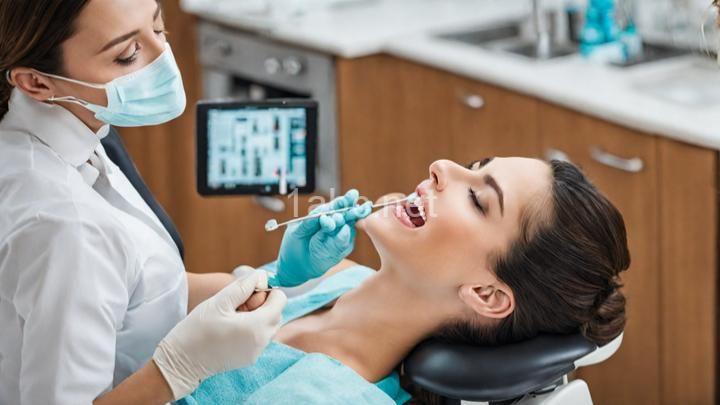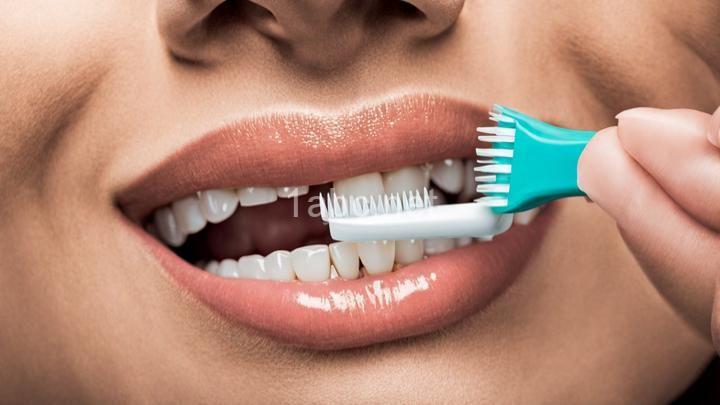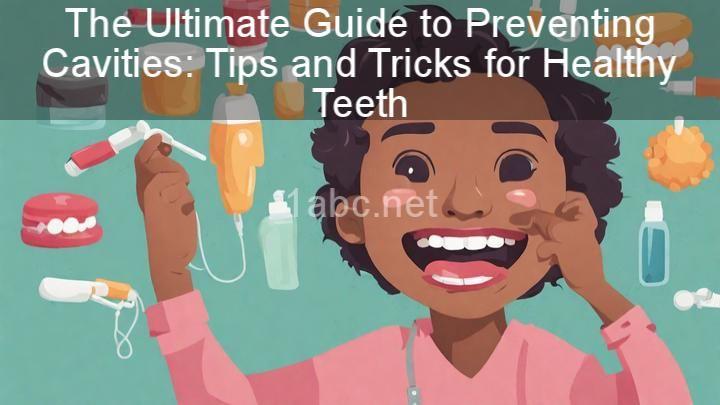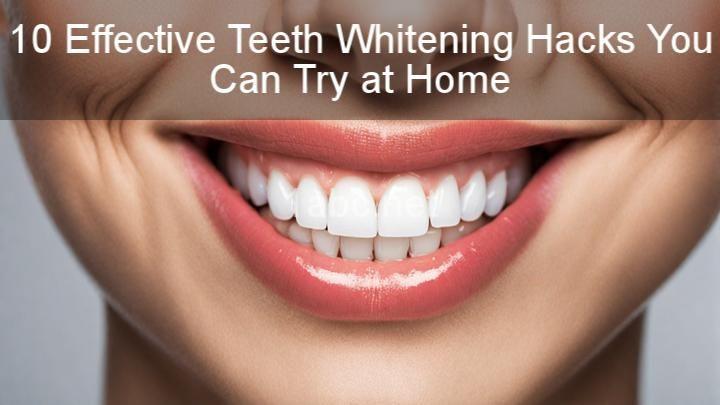Beyond Brushing: Other Essential Dental Health Practices You Need to Follow

Introduction:
Are you tired of hearing the same old advice about brushing your teeth regularly? Well, guess what? There's more to dental health than just brushing alone! While brushing is undoubtedly important, there are other essential practices that often go overlooked. In this blog, we will explore these often-neglected techniques that can make a significant difference in your dental health. So strap in and get ready to take your oral hygiene to the next level!
Section 1: Floss Like a Boss!
Let's face it, flossing is often seen as the neglected stepchild of dental hygiene. But did you know that brushing alone only cleans about 60% of the tooth surface? That's where flossing comes in. Flossing removes plaque and food particles from between your teeth and along the gumline, areas that your toothbrush simply can't reach.
Now, I know what you're thinking - flossing sounds like a tedious task. But fear not! Flossing can be quick and painless if you know the proper technique. Start by using about 18 inches of floss, wrapping it around your middle fingers, leaving only a small section to work with. Gently slide the floss between your teeth, making sure to curve it around each tooth in a C-shape motion. Be careful not to snap the floss, as this can harm your gums.
The benefits of flossing regularly are truly worth the extra effort. Not only does flossing help prevent gum disease, but it also keeps your breath fresh by removing those pesky food particles that can cause bad breath. So, next time you brush your teeth, don't forget to floss like a boss!
Section 2: The Power of Mouthwash
Ah, mouthwash - that minty-fresh elixir we all love. But did you know that using mouthwash is more than just a pleasant way to freshen your breath? Mouthwash can actually play a vital role in your dental health routine.
There are different types of mouthwashes available, each with its own benefits. Antiseptic mouthwashes help kill bacteria that can cause gum disease and bad breath, while fluoride mouthwashes strengthen your teeth and protect against cavities. It's essential to choose a mouthwash that suits your specific needs.
Incorporating mouthwash into your daily oral care routine is easy. After brushing and flossing, simply pour a small amount of mouthwash into a cup and swish it around in your mouth for about 30 seconds. Spit it out and voila! You're left with a fresh, clean feeling that will have you smiling all day long.
Section 3: Say Cheese! The Importance of Regular Dental Check-ups
Now, let's talk about the unsung heroes of dental health - regular dental check-ups. While brushing and flossing are essential, they can only do so much. Regular dental check-ups are crucial for maintaining optimal oral health.
During a dental check-up, your dentist or hygienist will thoroughly examine your teeth, gums, and mouth for any signs of dental problems. They may also take X-rays to detect hidden issues that may not be visible to the naked eye. Early detection is key when it comes to preventing more significant problems down the road.
So, don't wait until you have a toothache to visit your dentist. Schedule regular check-ups to stay on top of your dental health and nip any potential issues in the bud. Trust me; your future self will thank you!
Section 4: Eating Your Way to Healthy Teeth
We all know that diet plays a significant role in our overall health, but did you know that what you eat also affects your dental health? It's true! The foods you consume can either promote good dental hygiene or contribute to tooth decay and cavities.
One of the biggest culprits of poor dental health is sugar. Sugar feeds the bacteria in your mouth, leading to plaque buildup and tooth decay. But fear not, my sweet-toothed friends, there are tooth-friendly alternatives that can satisfy your cravings without harming your teeth. Reach for crunchy fruits and vegetables like apples and carrots, which help scrub away plaque. Cheese and yogurt are also great choices, as they contain calcium and phosphates that strengthen your teeth.
When it comes to beverages, water is your best friend. Not only does it keep you hydrated, but it also helps wash away food particles and neutralize the acids in your mouth. If you're craving something other than water, opt for unsweetened tea or milk instead of sugary sodas or juices.
Conclusion:
Congratulations! You've made it through the entire blog, and now you're armed with a wealth of knowledge about the essential dental health practices beyond brushing. By incorporating flossing, mouthwash, regular dental check-ups, and mindful eating into your routine, you're taking a proactive approach to your oral health.
Remember, these practices may require a little extra effort, but the long-term benefits are well worth it. Not only will you have a healthier smile, but you'll also enjoy the positive effects on your overall well-being.
So, what are you waiting for? Take action today and prioritize your dental health. Your future self will thank you for it!
Closing Statement:
Thank you for joining me on this dental health journey. I hope you found these essential practices helpful and informative. If you have any personal experiences or questions, I would love to hear from you in the comments section below.
Stay tuned for more helpful dental health tips from dorenelashay9177. Together, we can achieve healthier smiles and spread the importance of dental hygiene far and wide.
Thank you for your time, and remember - keep smiling!
FREQUENTLY ASKED QUESTIONS
What is Beyond Brushing: Other Essential Dental Health Practices You Need to Follow all about?
Beyond brushing, there are several other essential dental health practices that you need to follow to maintain optimal oral hygiene. While brushing is crucial, there are additional steps you can take to ensure your teeth and gums stay healthy.One important practice is flossing. Flossing helps remove plaque and food particles from between your teeth and along the gumline, where your toothbrush may not reach. By flossing daily, you can prevent gum disease and cavities in those hard-to-reach areas.
Another dental health practice to incorporate into your routine is using mouthwash. Mouthwash can help kill bacteria in your mouth and freshen your breath. It's especially beneficial for reaching areas that your toothbrush and floss may have missed.
Regular dental check-ups are another essential aspect of maintaining good oral health. Dentists can identify any potential issues early on and provide professional teeth cleaning to remove plaque and tartar buildup. Additionally, they can offer advice on proper oral care techniques specific to your needs.
Maintaining a healthy diet is also vital for your dental health. Limiting sugary and acidic foods and drinks can help prevent tooth decay and enamel erosion. Instead, opt for a balanced diet rich in fruits, vegetables, and calcium to promote strong teeth and gums.
Lastly, don't underestimate the importance of replacing your toothbrush regularly. Over time, the bristles can become frayed and less effective at removing plaque. Aim to replace your toothbrush every three to four months or as soon as the bristles start to show signs of wear.
By incorporating these practices into your dental care routine, you can go beyond brushing and ensure your overall oral health is in top shape. Remember to consult with your dentist for personalized advice and recommendations based on your specific needs.
Why is dental health important beyond just brushing?
Dental health goes beyond just brushing because it encompasses the overall well-being of our teeth and gums. While brushing is an essential part of maintaining good oral hygiene, it is not the only factor that contributes to a healthy smile.Regular dental check-ups play a crucial role in preventing and detecting any oral health issues. Dentists can identify early signs of tooth decay, gum disease, and other dental problems that may not be visible to the naked eye. By addressing these issues early on, we can prevent them from escalating into more serious and costly treatments.
Another important aspect of dental health is proper nutrition. A balanced diet, rich in vitamins and minerals, is essential for strong teeth and gums. Consuming too many sugary and acidic foods can increase the risk of tooth decay and enamel erosion. Therefore, it is crucial to maintain a healthy diet to support our dental health.
Furthermore, dental health is closely tied to our overall health and well-being. Numerous studies have established a link between oral health and various systemic conditions such as heart disease, diabetes, and respiratory infections. Taking care of our teeth and gums can help prevent the onset or progression of these health issues.
In addition, maintaining good dental health can have a positive impact on our self-esteem and confidence. A healthy smile can enhance our appearance and contribute to a positive self-image. On the other hand, dental problems such as tooth loss or bad breath can lead to social discomfort and embarrassment.
Overall, dental health is important beyond just brushing because it encompasses regular dental check-ups, proper nutrition, and its impact on our overall health and well-being. By prioritizing our dental health, we can ensure a healthy and confident smile for years to come.
What are some other essential dental health practices?
There are several other essential dental health practices that you should incorporate into your daily routine. Here are a few:
-
Brushing twice a day: Brushing your teeth at least twice a day is crucial for maintaining good dental hygiene. Use a soft-bristled toothbrush and fluoride toothpaste to thoroughly clean all surfaces of your teeth.
-
Flossing daily: Flossing helps remove plaque and debris from between your teeth and along the gumline. Make sure to floss gently and reach all the way to the gumline to ensure a thorough cleaning.
-
Using mouthwash: Rinse your mouth with an antimicrobial mouthwash after brushing and flossing to help kill bacteria and freshen your breath. Look for a mouthwash that contains fluoride to strengthen your tooth enamel.
-
Eating a balanced diet: Your diet plays a significant role in your dental health. Limit your intake of sugary and acidic foods and drinks, as they can contribute to tooth decay. Instead, focus on consuming a variety of fruits, vegetables, whole grains, and lean proteins.
-
Avoiding tobacco products: Smoking and using other tobacco products can have severe consequences for your oral health. They can stain your teeth, cause bad breath, and increase your risk of gum disease and oral cancer. Quitting tobacco is essential for maintaining a healthy smile.
-
Regular dental check-ups: Even if you practice good oral hygiene at home, it's crucial to visit your dentist regularly for check-ups and professional cleanings. Your dentist can detect any early signs of dental problems and provide necessary treatments to prevent them from worsening.
Remember, these are just a few essential dental health practices. It's always best to consult with your dentist to develop a personalized oral care routine that suits your specific needs.
How often should I brush my teeth?
To maintain good oral hygiene, it is recommended to brush your teeth at least twice a day. This includes brushing in the morning after breakfast and before going to bed at night. Brushing for about two minutes each time is ideal. However, if you consume sugary or acidic foods throughout the day, it may be beneficial to brush your teeth after those meals as well. Remember to use a soft-bristled toothbrush and fluoride toothpaste for effective cleaning. Additionally, don't forget to replace your toothbrush every three to four months or sooner if the bristles become frayed. Regular brushing, along with flossing and regular dental check-ups, will help keep your teeth and gums healthy.



